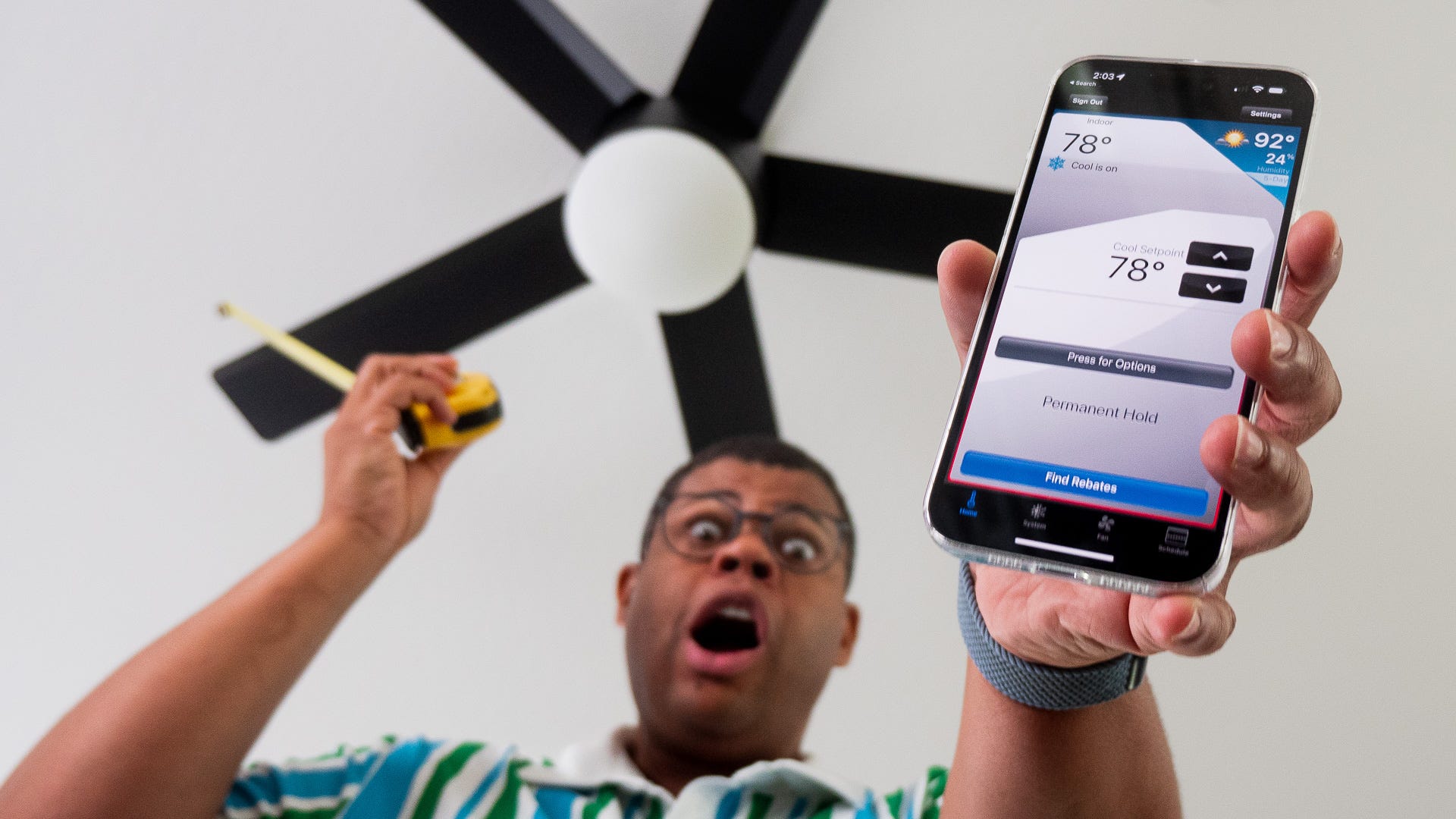What's the best temperature to set your thermostat this summer? What experts say
To save energy and money, use window coverings to prevent heat gain inside, turn off ceiling fans when leaving a room and use a bathroom fan when bathing to remove heat and humidity.

As temperatures begin to rise, it's nearly time (if not already) to turn on that air conditioning.
But what's the best temperature to set the thermostat to during summer months? And what are some key ways to keep electricity bills down?
The U.S. Department of Energy recommends keeping indoor temperatures comfortable, at a level that provides humidity control, all while aiming to keep the difference between the indoor and outdoor temperatures low to save the most money.
With summer right around the corner, here are some tips for how to efficiently cool your living space.
What should you set your thermostat to in the summer?
The ideal temperature to keep your thermostat at during the summer is 78 degrees Fahrenheit, various energy companies, including Missouri's Ameren, Maryland's Constellation Energy and Florida's Carrier Global, state.
Keep the house warmer when you're away
The Department of Energy recommends keeping a home warmer than normal when away to avoid unnecessary air conditioning use.
On average, a difference of 7 to 10 degrees Fahrenheit for about eight hours a day can save as much as 10% a year on cooling and heating bills, the Department of Energy states.
Schedule a regular maintenance checkup before summer hits
The Department of Energy advises that homeowners schedule regular maintenance to ensure their cooling systems and appliances are working efficiently.
For some do-it-yourself maintenance, vacuum air intake vents regularly to remove dust buildup. Make sure furniture isn't blocking airflow registers, and avoid placing electronics near air conditioning thermostats, as the thermostat senses heat from these appliances and may cause air conditioning to run longer than necessary, the Department of Energy states.
Check, seal leaks to avoid escaping cool air
Checking and sealing air leaks should also be a part of regular maintenance.
The Department of Energy recommends checking for indoor air leaks around baseboards, windows, doors, light fixtures, appliances, switches and electrical outlets. If sealing do-it-yourself style, plug holes with the appropriate caulking and/or weather stripping.
How to save on air conditioning bills
Here are some more tips for how to save money on your air conditioning bill this summer:
- Install window coverings to prevent heat gain through windows during the day.
- Turn off ceiling fans when you leave a room. Fans cool people, not rooms, the Department of Energy states.
- When taking a shower or bath, use a bathroom fans to remove heat and humidity.
Greta Cross is a national trending reporter at Paste BN. Story idea? Email her at gcross@usatoday.com.